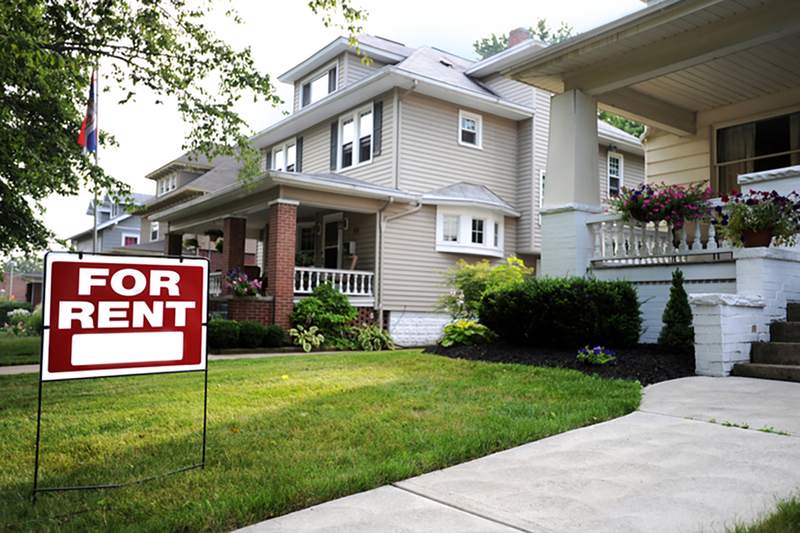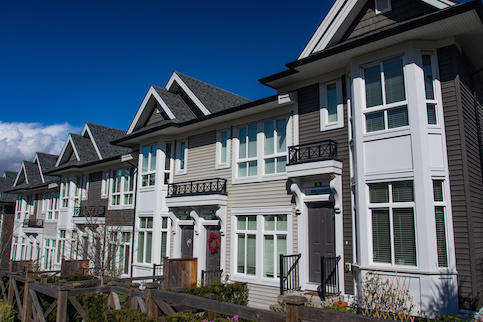Real estate investing can be an excellent way to earn passive income, but only if you invest in the right property. Choosing a poor investment can cause you time and money in the long run.
If you’re just getting started with real estate investing, you need a way to determine whether a property is a good investment or not. One of the best ways to do this is by calculating the return on investment (ROI) in real estate.
What Is Return On Investment (ROI) In Real Estate?
ROI is a percentage comparing profits earned from real estate against any costs you incurred. Real estate investors often use this metric to determine whether a property will be a good investment. For that reason, it’s essential to understand how to calculate ROI before getting started in real estate investing.
See What You Qualify For
Buy A Home
Discover mortgage options that fit your unique financial needs.

Refinance
Refinance your mortgage to have more money for what matters.
Tap Into Equity
Use your home’s equity and unlock cash to achieve your goals.
Why Should You Use ROI To Assess An Investment Property?
Real estate investors should calculate ROI before buying a rental property because it measures how profitable an investment could be down the road. If the ROI of a rental property is too low, then it probably isn’t a good investment and could cause you to lose money.
Of course, there are no guarantees, but you can increase your odds of profitability by assessing a potential investment first. Calculating ROI can help you compare different investment opportunities and determine which ones make sense to pursue.
It also helps you set your investment goals and determine how much risk you’re willing to take on. ROI can also help you determine how to improve the property to make it more profitable.
How To Calculate ROI On A Rental Property
ROI can be used on many different types of investments, including REITs and cash sales. For the purposes of this article, we’ll look at rental property to illustrate how ROI formulas can help.
The first step you’ll take to determine ROI is outlining any investment costs that come with a rental property. The investment costs include the property value, repair costs and price per square footage of the home. You’ll also need information about the mortgage and monthly rental expenses.
First calculate your net income by subtracting the total cost of your investment by its total gains.
Net Income = Investment gain – Cost of investment
Once you know the net income, you’ll calculate ROI as a percentage by dividing your net income by the total expenses.
ROI = Net Income / Cost of investment
Using The Cost Formula
Putting it all together, the full formula for determining ROI is:
ROI = (Investment gain – Cost of investment) / Cost of investment
You’ll take the following steps to use the cost formula:
- Start by calculating the total net income of your investment.
- Next, you’ll identify all the expenses associated with the asset, like operating and maintenance costs.
- Plug both values into your formula to determine the ROI.
From there, you can use your ROI to determine whether an investment is profitable.
Using The Out-Of-Pocket Method
The out-of-pocket method compares equity to market value, and it’s typically used when investors want to focus on the tangible and immediate cash outflows and inflows related to an investment. The out-of-pocket method uses the following formula:
ROI = Equity / Market Value
Here are the steps you’ll take to use the out-of-pocket method:
- Start by determining the equity you have in the property (the property’s market value minus what you spent on the property (including purchase price, what you owe on the mortgage, repairs, etc.).
- Once you have your equity, you’ll divide it by the market value.
What Is A Good ROI On A Rental Property?
A good ROI in real estate is usually anything between 8% to 12% or higher. However, several factors can affect the ROI, including the location, rental prices and overall risks involved. And ROI isn’t the only factor you should consider when evaluating the profitability of a rental property.
Real Estate ROI FAQs
If you still have more questions about determining ROI in real estate, the following frequently asked questions may help.
What are some alternatives to the ROI formulas?
ROI formulas are the most commonly used metric for evaluating the profitability of an investment, but there are alternative metrics you can consider. For example, the capitalization rate can help you estimate a property’s income potential. You can also use the internal rate of return or cash-on-cash return to measure profitability.
How can I increase my return on investment?
You can increase your real estate’s return on investment by improving the property and decreasing its operating costs. For example, you can make strategic improvements to the property and regularly raise rent to match current market rates. You can also look for ways to reduce costs by negotiating with service providers and taking advantage of tax benefits.
What are the best types of real estate investments for ROI?
If you’re looking for a real estate investment with a traditionally good ROI, you might consider single-family homes, REITs and multifamily properties.
The Bottom Line
ROI stands for return on investment �– or the amount of money you’ll make on an investment after taking into consideration the money you spent on it. An investor should use this calculation to ensure the property will reach their income goals.
Find A Mortgage Today and Lock In Your Rate!
Get matched with a lender that will work for your financial situation.

Jamie Johnson
Jamie Johnson is a Kansas City-based freelance writer who writes about a variety of personal finance topics, including loans, building credit, and paying down debt. She currently writes for clients like the U.S. Chamber of Commerce, Business Insider and Bankrate.












